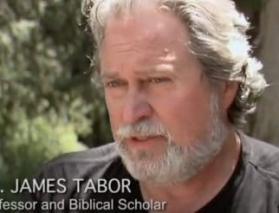It is often said that the Hebrew YHWH, the unpronounceable name for God, is based on the Hebrew verb, "to be." That seems reasonable, and there is little doubt that God's supposed revelation of the divine name at the bush is also rooted in that same verb. Yet, the simple fact that what God actually says from the bush can be parsed in so many different ways suggests to me that far from a revelation of the name from the bush, what Moses in reality gets from God is a flat refusal to reveal the divine name. Moses is to return to the Israelites in Egypt and tell them that "I am" has been revealed to him. There is finally no real content in such a "name," and yet it may be all Moses and we can get.
This divine dodge is repeated to Moses later in the Exodus story. After the event of the molten calf, Moses heads back up the mountain to attempt to convince YHWH not to destroy the sinful people and goes so far as to offer his own life for the wretches (Ex. 32:32). But in 33:18 Moses apparently goes a step too far with God. "Show me your glory," he demands, but YHWH will have none of it. God's glory, God's very essence, is not at the beck and call of any human, even the great Moses. Instead, says YHWH, Moses may see God's "goodness" (Ex. 33:19), and finally God's "back" (literal Hebrew "after"). No one at the end of the day may know or speak the name of God.
And so it is at the bush. God's so-called revelation is not a revelation in the usual sense. It is a revelation that God's name may not be known, and Moses and we must learn to live with that.
In our own time the use of the name of God has become ubiquitous and thus cheap. "God bless America," all our politicians intone with the obvious implication that God cares less or little or nothing about anyone else. This phrase is little less than blasphemy or at the very least a shattering of the commandment that warns against "using God's name for nothing." Perhaps we need a six-month moratorium on saying the name of God out loud, but I will not hold my breath. Like Moses, when we stand before our burning bushes, in whatever form our call to the work of God may take, we finally must be satisfied with the "goodness" of our God, or even with God's "after," as we determine what God has for us to do. But the actual name of God we may not have. Okay. A completely free God, free of my calculation, my making small, my limited understanding, is the God I need in any case.





